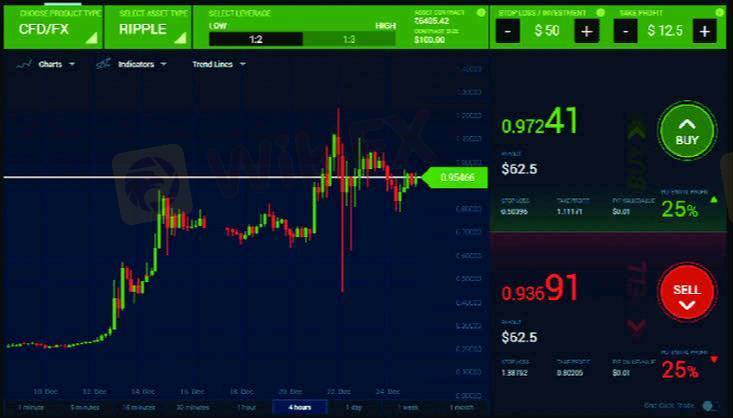
2025-01-28 23:44
Na indústriaIntegrating Sustainable Investing in Trading
#firstdealofthenewyearFateema
Environmental, Social, and Governance (ESG) trading is an investment approach that integrates ESG factors into trading decisions, reflecting the growing importance of sustainable and responsible business practices. This post discusses the role of ESG considerations in trading, its benefits, challenges, and the impact on financial markets.
ESG Considerations in Trading
ESG trading takes into account a company's performance in three key areas:
Environmental: A company's impact on the environment, including factors such as greenhouse gas emissions, waste management, and resource efficiency.
Social: A company's relationship with employees, suppliers, customers, and local communities, addressing issues such as labor practices, human rights, and community engagement.
Governance: A company's leadership, management, and corporate governance practices, including factors such as board diversity, executive compensation, and business ethics.
Benefits of ESG Trading
Incorporating ESG factors into trading strategies offers several benefits, including:
Long-Term Performance: Research suggests that companies with strong ESG performance may deliver better long-term financial results, reducing investment risk and enhancing potential returns.
Aligning Investments with Values: ESG trading allows investors to support companies that prioritize sustainability and social responsibility, aligning their investments with their personal values.
Promoting Sustainable Business Practices: By directing capital towards companies with strong ESG performance, investors can encourage and reward responsible business practices.
Challenges and Limitations
Despite its potential benefits, ESG trading also faces challenges and limitations:
Data Availability and Standardization: Access to reliable and comparable ESG data can be a significant challenge, as reporting standards and methodologies vary across companies and industries.
Balancing ESG and Financial Objectives: Incorporating ESG factors into trading strategies must be balanced with financial objectives, such as risk management and return generation, which can be a complex and nuanced process.
Limited Investment Universe: Focusing solely on ESG-compliant companies may restrict the range of investment opportunities, potentially impacting portfolio diversification and risk management.
Impact on Financial Markets
As ESG investing gains momentum, financial markets are responding with the development of new products and services, such as ESG-focused exchange-traded funds (ETFs), indices, and research tools. This increased attention to ESG factors is reshaping the investment landscape and encouraging companies to prioritize sustainability and social responsibility in their operations.
In conclusion, ESG trading integrates environmental, social, and governance considerations into investment decisions, reflecting the growing importance of sustainable and responsible business practices. While offering potential benefits, such as enhanced long-term performance and alignment with personal values, ESG trading also presents challenges related to data availability, balancing ESG and financial objectives, and investment diversification.
Gostar 0
FX1976829074
Trader
Discussões populares
Análise de mercado
Brasileiros FX
Análise de mercado
Brasileiros no FOREX
Análise de mercado
Don't buy Bitcoin now! Look at my review and description in the print!
Análise de mercado
análises do mercado financeiro ao vivo confira
Na indústria
Não consegui sacar meus peofits
Na indústria
Não é possível retirar
Categoria do mercado

Plataforma

Exibições

IB

Recrutamento

EA

Na indústria

Mercado

Índice
Integrating Sustainable Investing in Trading
 Indonésia | 2025-01-28 23:44
Indonésia | 2025-01-28 23:44#firstdealofthenewyearFateema
Environmental, Social, and Governance (ESG) trading is an investment approach that integrates ESG factors into trading decisions, reflecting the growing importance of sustainable and responsible business practices. This post discusses the role of ESG considerations in trading, its benefits, challenges, and the impact on financial markets.
ESG Considerations in Trading
ESG trading takes into account a company's performance in three key areas:
Environmental: A company's impact on the environment, including factors such as greenhouse gas emissions, waste management, and resource efficiency.
Social: A company's relationship with employees, suppliers, customers, and local communities, addressing issues such as labor practices, human rights, and community engagement.
Governance: A company's leadership, management, and corporate governance practices, including factors such as board diversity, executive compensation, and business ethics.
Benefits of ESG Trading
Incorporating ESG factors into trading strategies offers several benefits, including:
Long-Term Performance: Research suggests that companies with strong ESG performance may deliver better long-term financial results, reducing investment risk and enhancing potential returns.
Aligning Investments with Values: ESG trading allows investors to support companies that prioritize sustainability and social responsibility, aligning their investments with their personal values.
Promoting Sustainable Business Practices: By directing capital towards companies with strong ESG performance, investors can encourage and reward responsible business practices.
Challenges and Limitations
Despite its potential benefits, ESG trading also faces challenges and limitations:
Data Availability and Standardization: Access to reliable and comparable ESG data can be a significant challenge, as reporting standards and methodologies vary across companies and industries.
Balancing ESG and Financial Objectives: Incorporating ESG factors into trading strategies must be balanced with financial objectives, such as risk management and return generation, which can be a complex and nuanced process.
Limited Investment Universe: Focusing solely on ESG-compliant companies may restrict the range of investment opportunities, potentially impacting portfolio diversification and risk management.
Impact on Financial Markets
As ESG investing gains momentum, financial markets are responding with the development of new products and services, such as ESG-focused exchange-traded funds (ETFs), indices, and research tools. This increased attention to ESG factors is reshaping the investment landscape and encouraging companies to prioritize sustainability and social responsibility in their operations.
In conclusion, ESG trading integrates environmental, social, and governance considerations into investment decisions, reflecting the growing importance of sustainable and responsible business practices. While offering potential benefits, such as enhanced long-term performance and alignment with personal values, ESG trading also presents challenges related to data availability, balancing ESG and financial objectives, and investment diversification.
Gostar 0
Também quero comentar.
Perguntar
0Comentários

Ainda não há comentários. Faça o primeiro.

Perguntar
Ainda não há comentários. Faça o primeiro.